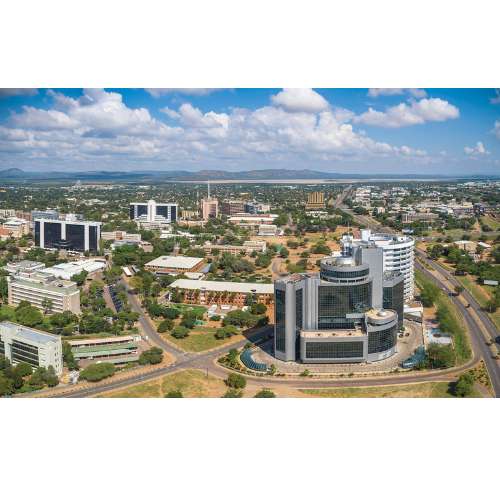Botswana’s Economy: Challenges, Shifts, and Opportunities Ahead
Botswana, long hailed as one of Africa’s most stable and well-managed economies, is facing a pivotal moment this year. Once celebrated for its rapid post-independence growth and prudent fiscal management, the country now finds itself grappling with economic contraction, declining diamond revenues, and the urgent need for diversification. As global investors and regional stakeholders assess the landscape, understanding Botswana’s current economic dynamics is essential.
Economic Contraction and the Diamond Dilemma
According to the International Monetary Fund (IMF), Botswana’s economy is projected to shrink by 0.4% in 2025, following a deeper contraction of -3.0% in 2024. This marks the second consecutive year of negative growth—a rare occurrence for a country that has historically outperformed many of its regional peers.
The primary culprit? A prolonged slump in the diamond industry, which accounts for over 90% of Botswana’s exports and roughly 20% of its GDP. Global demand for diamonds has weakened, and production has declined, dragging down national revenues and exposing the country’s vulnerability to commodity price shocks.
While previous recessions—such as those during the global financial crisis and the COVID-19 pandemic—were followed by swift recoveries, economists warn that this downturn may be different. The fiscal space is narrower, public debt has risen, and the structural dependence on diamonds remains deeply entrenched.
A Tale of Two Sectors: Diamonds vs. Non-Diamond Economy
Interestingly, Botswana’s economic story is not entirely bleak. In 2024, while the diamond sector contracted by 27%, the non-diamond economy grew by 4.1%, accounting for nearly 60% of GDP.
This divergence highlights a critical opportunity: if Botswana can successfully insulate its broader economy from the volatility of the diamond market, it may chart a more sustainable and inclusive growth path.
However, challenges remain. The spillover effects from the diamond slump—such as reduced government spending and lower consumer confidence—threaten to dampen momentum in other sectors. Bridging this gap will require targeted policy interventions and private sector innovation.

Political Transition and Economic Reform
This year also marks a significant political shift in Botswana. In the October 2024 elections, the long-ruling Botswana Democratic Party (BDP) was voted out of office for the first time since independence. The new administration, led by President Duma Boko of the Umbrella for Democratic Change (UDC), has promised a more inclusive, rights-based approach to governance.
This transition brings both uncertainty and hope. On one hand, investors are watching closely to see how the new government manages fiscal pressures and implements reforms. On the other, the change in leadership could catalyze long-overdue diversification efforts and unlock new avenues for growth.
The UDC has signaled its intent to promote private sector-led development, improve resource management, and invest in human capital. If these goals are realized, Botswana could emerge stronger in the years ahead.
Key Economic Indicators in 2025
| Indicator | Value (2025) |
|---|---|
| Real GDP Growth | -0.4% |
| Inflation Rate | 2.8% |
| Public Debt (as % of GDP) | 27.4% |
| Unemployment Rate | 27.6% |
| Gini Index (Inequality) | 53.3 |
| Diamond Sector Growth | -27% (2024) |
| Non-Diamond Sector Growth | +4.1% (2024) |
Opportunities for Investment and Growth
Despite the current downturn, Botswana offers several promising avenues for investment and development:
1. Tourism and Hospitality
Botswana’s natural beauty—from the Okavango Delta to the Kalahari Desert—makes it a prime destination for eco-tourism. With global travel rebounding, investments in sustainable tourism infrastructure could yield strong returns.
2. Renewable Energy
As climate shocks like droughts threaten livelihoods, there’s growing interest in solar and wind energy projects. Botswana’s vast land and high solar irradiance make it ideal for clean energy development.
3. Education and Health Services
With a young population and rising demand for quality services, private investments in education and healthcare can fill critical gaps and support long-term human development.
4. Agribusiness and Food Security
Diversifying away from mining, Botswana is exploring agribusiness as a strategic sector. Investments in irrigation, processing, and logistics can boost productivity and reduce import dependence.
5. Digital Economy
The rise of fintech, e-commerce, and digital services presents new opportunities. With the right regulatory framework, Botswana could become a regional tech hub.
